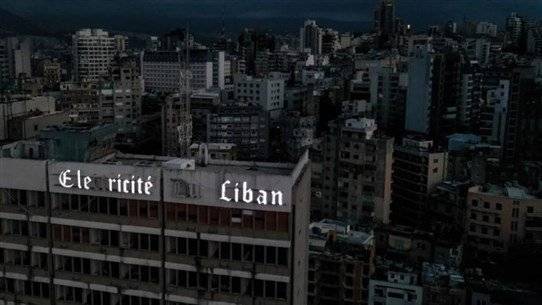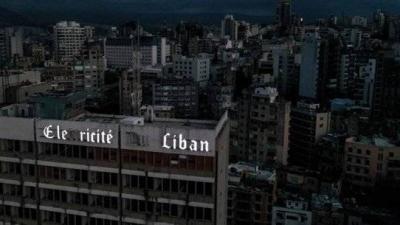Lebanon has not transcended the path of "temporary solutions" that it has adopted to provide electricity, which remains entangled in administrative reforms, local political disputes, and international conditions in exchange for support for the sector to reach a definitive solution to the electricity interruption crisis—a solution that Lebanese people do not expect to come swiftly. Daily pressures on the electricity crisis continue, with repeated warnings of drifting into darkness, once due to shortages of fuel for power generation stations, and another time due to malfunctions or delays in paying fuel dues, and recently due to the inability to pay the dues of the operator of the largest power stations. These issues have recurred for months, along with warnings of Lebanon drowning in total darkness.
The failure to pay dues to the operator of two electricity plants in Lebanon on Wednesday added to the set of reasons behind reduced electricity supply and increased rationing, as the company operating the power plants in Zahrani and Deir Ammar threatened to shut down both plants. This prompted Minister of Energy Walid Fayad to engage in shuttle diplomacy with President Michel Aoun, caretaker Prime Minister Najib Mikati, and Central Bank Governor Riad Salameh to resolve the issue, preventing electricity cuts to vital facilities such as Rafic Hariri International Airport in Beirut and the port.
A document obtained by Asharq Al-Awsat showed the transfer of $23 million and eighty thousand through the Central Bank of Lebanon, in favor of the operating company tasked with maintaining the production stations under a contract with the Lebanese state. This payment is part of a total contract value of $60 million to operate the production plants.
Electricity interruptions in Lebanon have surged dramatically over the last two years, a scene unseen since the end of the Lebanese war. Lebanon is plunged into darkness for about twenty hours daily, driving Lebanese citizens to rely on alternative electricity networks (generators). The impact of electricity outages extends beyond lighting; it has also affected the supply of drinking water, as water pumping stations require electricity.
The ongoing context of the crisis indicates that the electricity interruption problem stems from the inability to secure the price of fuel for the production stations after the parliament's refusal to pay dues in the form of advances from the budget in favor of the company, without implementing the reform plan, which has faced political wrangling for five years. The international community, as well as local political forces and civil society organizations, pressures for the reform of a sector that has drained the treasury of more than $24 billion in energy and fuel imports for Electricité du Liban, according to Central Bank data. Political forces are demanding the implementation of the plan, beginning with the appointment of a regulatory body for the sector, which entails "removing powers from the minister in favor of the body that includes experts and governmental officials," a point that hinders political agreements on its appointment, as per sources following discussions regarding the crisis.
This applies to international institutions as well. Ministerial sources told Asharq Al-Awsat that representatives of international financial institutions, including the International Monetary Fund and the World Bank, persistently inquire about the fate of the regulatory bodies for vital productive sectors, especially electricity. They clarified that international financial institutions consider the formation of regulatory bodies a fundamental step "that is unavoidable to initiate structural reform through the independence of these bodies and transparency of their financial data, which also opens the door for reforming treasury resources," as stated in the government commitments made at the CEDRE conference in 2017.
Since stopping the disbursement of treasury advances, which are already suffering from a considerable deficit amid the financial crisis and deteriorating lira exchange rate against the dollar, the government has begun searching for alternatives to ensure "minimum" energy supply within the Ministry of Energy. According to its sources, Minister Walid Fayad "is making great efforts to secure energy through communications with interested countries," the latest of which was with Iraq, aiming to extend the contract signed with the Iraqi government last year for providing Lebanon with fuel.
Lebanon, which needs approximately 3,000 megawatts of electricity, has recently limited its production to hydroelectric stations "which have an output capacity of about 100 megawatts," and to stations operated on fuel supplied under the agreement with the Iraqi government. Since last August, Lebanon has begun implementing the agreement that grants it shipments of crude oil, to be exchanged with foreign companies for about 40,000 tons monthly of fuel for power stations.
Before the contract expired, Fayad visited Iraq where he met with the Iraqi ministers of oil and finance and the governor of the Central Bank of Iraq. Ministry sources stated that the visit "was very successful," indicating "a high likelihood of extending the contract with Iraq," noting that the discussions revolved around the need for Lebanon to begin paying the dues of the current contract and activating agreed trades (in sectors like health and education, among others).
Lebanon is also working in parallel on a plan to import gas from Egypt for a gas-powered production plant in the north and to import electricity from Jordan to alleviate the crisis, a plan that awaits financing from the World Bank, as well as American guarantees that Egypt and Jordan will not face repercussions from the Caesar Act, given that gas and electricity will be transported through Syrian territory. Ministry sources told Asharq Al-Awsat that Minister Fayad "has completed all necessary requirements since he arrived at the ministry by approving an electricity plan that received the government's approval before it transitioned to caretaker status, and signing contracts with Egypt and Jordan to import gas from Egypt and electricity from Jordan, and he has not ceased communicating with concerned countries and institutions such as the United States and the World Bank, among others, to secure electricity and finalize technical arrangements like rehabilitating the lines," in addition to his recent visits to Iraq and establishing emergency plans and addressing developments swiftly and seriously.




